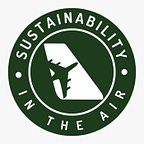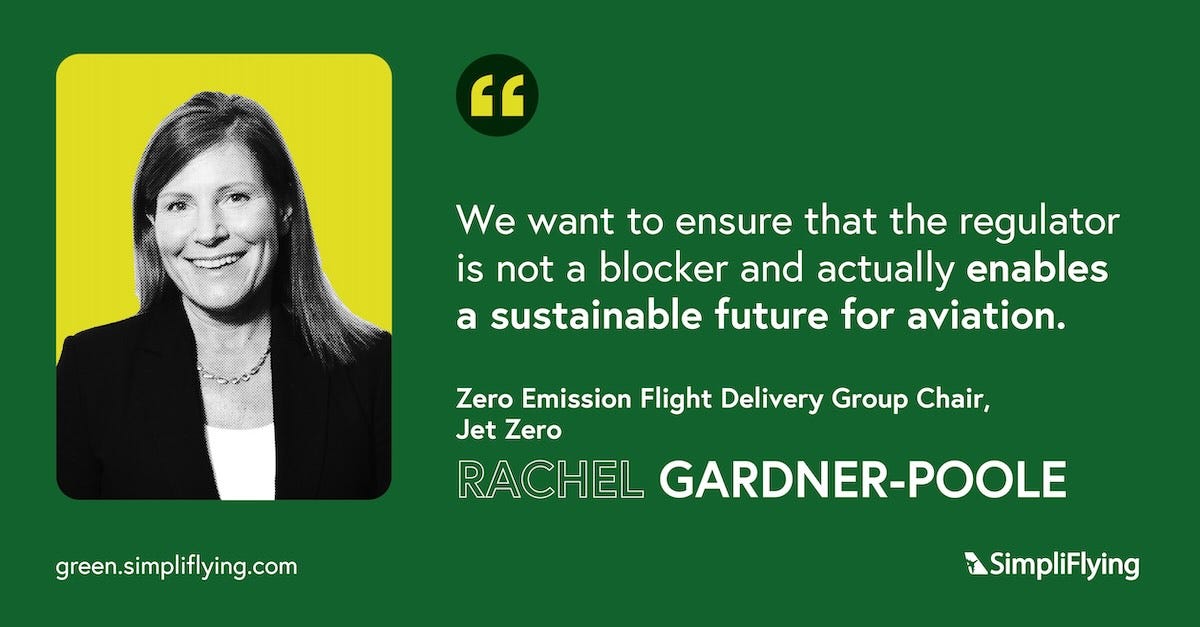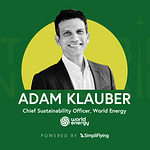In this episode of our ‘Sustainability in the Air’ podcast, Rachel Gardner-Poole, chair of the Zero Emission Flight (ZEF) Delivery Group within the UK’s Jet Zero Council, speaks with SimpliFlying CEO Shashank Nigam.
Established in 2020, the Jet Zero Council is a collaborative effort between the government, industry, and academia to achieve net zero emissions in UK aviation by 2050. The ZEF Delivery Group focuses on zero-emission flight technologies and infrastructure and will deliver its objectives through its 3 subgroups focusing on aircraft, infrastructure, and regulation.
Here are the key highlights of the conversation:
The Jet Zero Council and Zero Emission Flight (ZEF) Delivery Group (2:15)
Sustainable aviation fuel and the UK’s decarbonisation strategy (7:20)
The role of hydrogen and electric aircraft in decarbonisation (12:29)
Non-CO2 emissions and contrails research (19:40)
Commercialisation and funding for aviation decarbonisation startups (21:50)
Airlines’ role in decarbonisation (24:50)
Collaboration and engagement through the Jet Zero Council and ZEF Delivery Group (25:48)
Rapid Fire! (29:31)
Keep reading for a quick overview of the episode.
Why government involvement and funding matters
The Jet Zero Council involves multiple UK Government departments, emphasising the importance of cross-departmental collaboration in achieving net zero emissions. The council is chaired by three secretaries of state from different departments, including the Department for Transport, the Department of Energy Security and Net Zero, and the Department of Business and Trade.
The UK Government is fully committed to decarbonising aviation and has invested nearly £1 billion in the Aerospace Technology Institute (ATI) program as well as in sustainable aviation fuel (SAF) plants and infrastructure, with five SAF plants expected to be under construction by 2025.
5 ways the ZEF Delivery Group is enabling decarbonisation
1. Collaboration and engagement
Collaboration and engagement are at the heart of the Jet Zero Council and the ZEF Delivery Group, bringing together different stakeholders from government, industry, and academia to work towards a common goal.
The ZEF Delivery Group also organises workshops and meetings to ensure its members are all on the same page and to gather feedback. Noteworthily, all members of the Jet Zero Council, including senior-level executives, participate in the group voluntarily, dedicating their time and expertise to finding solutions for a greener future of aviation.
2. New technologies: hydrogen and electric aircraft
The ZEF Delivery Group is focusing on the development of hydrogen and electric aircraft, which Gardner-Poole believes will play a significant role in short-haul flights and smaller aircraft. However, the timeline for widespread adoption is longer, with hydrogen aircraft expected to enter service in the mid-2030s and beyond, she adds.
The development of these technologies faces challenges, including the need for new infrastructure at airports and the public perception of these technologies. To tackle these difficulties, the ZEF Delivery Group has established 3 subgroups focusing on aircraft technology, infrastructure, and regulations.
3. Promoting Sustainable Aviation Fuel (SAF)
SAF is a crucial component of the UK’s decarbonisation strategy, with a target of 10% SAF by 2030. The government is also establishing a SAF Clearing House to facilitate the testing and approval of innovative fuels, and partnerships between airlines, fuel producers, and aircraft manufacturers are being formed to advance SAF development and adoption.
While SAF is essential, Gardner-Poole emphasises that it is not the only solution. According to a study conducted by McKinsey, improvements in aircraft aerodynamics, engines, and materials contributed to a 39% reduction in fuel consumption per passenger between 2005 and 2019. Continued improvements can be expected with the introduction of new, more efficient aircraft, says Gardner-Poole.
“People often forget about how much improvement has already been made [in aircraft efficiency] — the aerodynamics, the engines, all of which make the aircraft much more efficient… So when you look at the new aircraft that are coming out, they’re even more efficient. So I think it’s not just SAF under those aircraft, a lot of the efficiencies are in the actual aircraft structures.”
4. Setting up infrastructure
Preparing airports for the introduction of hydrogen and electric aircraft is a significant undertaking, says Gardner-Poole. For example, Heathrow Airport may need to build a large hydrogen storage terminal, while smaller airports like Bristol and Edinburgh are exploring collaborations with other sectors and regions to develop the necessary infrastructure. International cooperation is crucial for the success of zero-emission flight technologies.
The ZEF Delivery Group has established a task group to examine the international landscape, identify actions needed to make zero-emission flights viable globally, understand developments in other countries, and position the UK as a leader in this field.
5. Guiding airlines’ role in decarbonisation
Airlines play a pivotal role in decarbonising aviation, and Gardner-Poole emphasises the importance of a multi-faceted approach. She believes that airlines should invest in various technologies and solutions rather than focusing on a single option. For example, some airlines, like British Airways, are already forming partnerships with SAF producers and other companies to accelerate their journey to net zero, she adds.
However, Gardner-Poole suggests that more needs to be done and that the pace of these collaborations needs to increase to meet the ambitious 2050 target set by the UK government.
‘Sustainability in the Air’ is the world’s leading podcast dedicated to sustainable aviation. Through in-depth conversations with top aviation leaders, we break through the clutter and provide a clear roadmap for a net-zero future.













